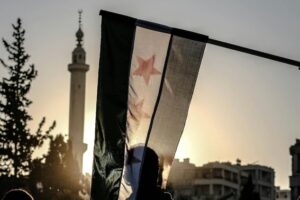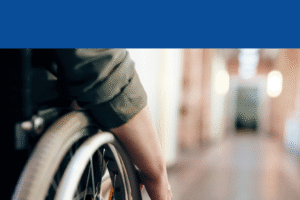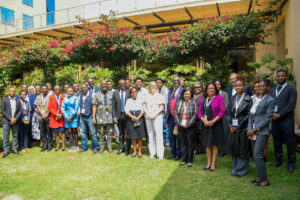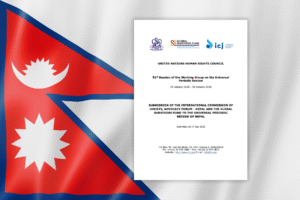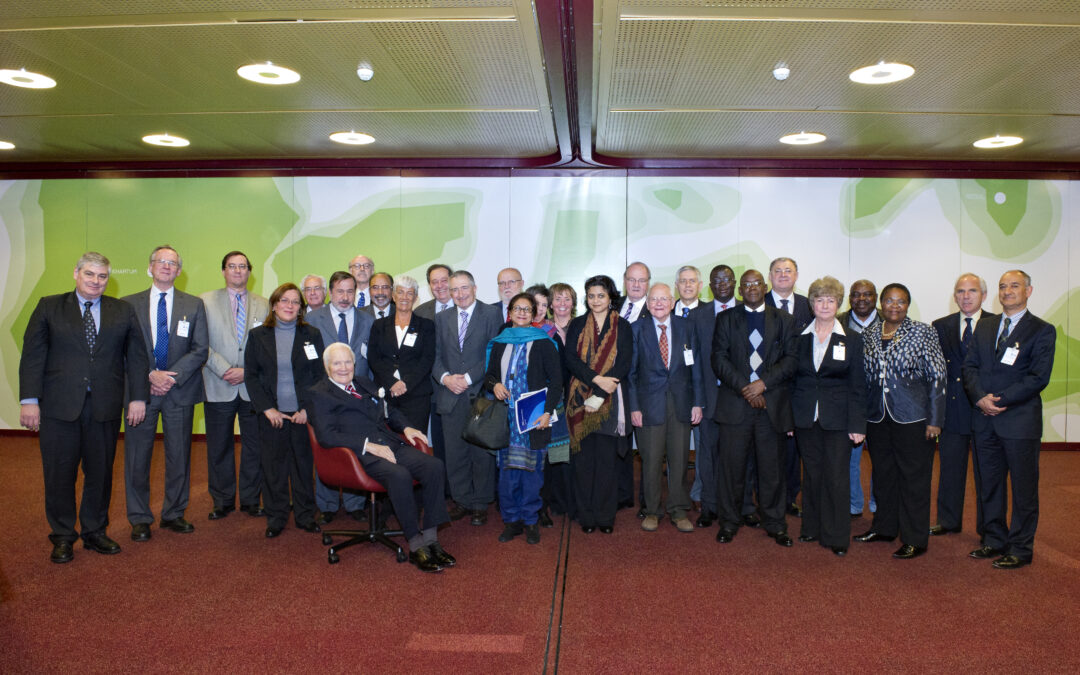
Mar 4, 2013 | News
The ICJ is pleased to announce the election of ten eminent jurists to the ICJ Commission.
Throughout its sixty-year history, the ICJ’s credibility has stemmed from its unique group of eminent jurists and legal experts: the ICJ Commission. ICJ Commissioners provide expert support and strategic direction to the ICJ Secretariat’s regional and thematic programmes.
The following Commissioners have been elected for five-year terms:
Commissioners Elected for First Terms
Prof. Andrew Clapham (UK)
Justice Radmila Dicic (Serbia)
Mr. Shawan Jabarin (Palestine)
Justice Qinisile Mabuza (Swaziland)
Justice Tamara Morschakova (Russian Federation) – from 1st May 2013
Justice Egbert Myjer (Netherlands)
Prof. Victor Rodriguez Rescia (Costa Rica)
Prof. Marco Sassoli (Italy/Switzerland)
Justice Stefan Trechsel (Switzerland)
Prof. Rodrigo Uprimny Yepes (Colombia)
Commissioners Elected for Second Terms
Mr. Roberto Garreton (Chile)
Prof. Robert Goldman (USA)
Commissioners Elected for Third Terms
Justice Ian Binnie (Canada)
Justice Elizabeth Evatt (Australia)
Ms. Karinna Moskalenko (Russian Federation)
Prof. Sir Nigel Rodley (UK)
Mr. Raji Sourani (Palestine)
For further details, including biographies for each of the ICJ’s Commissioners and Honorary Members, please click here .
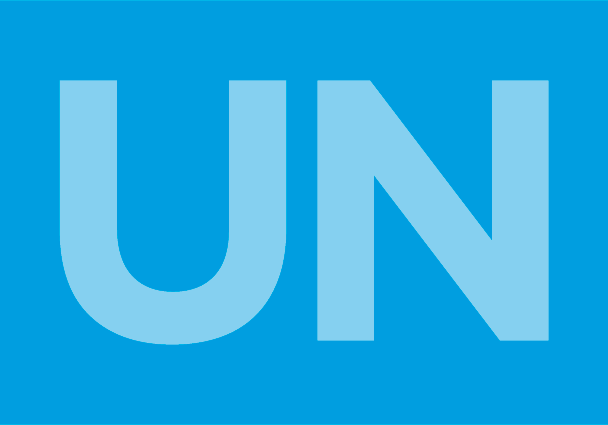
Feb 26, 2013 | Advocacy, Non-legal submissions
The ICJ joined 14 other NGOs in expressing deep concern over the exclusion of civil society from the consultation process on the UN human rights treaty bodies strengthening process.
In a statement delivered by the International Service for Human Rights during an informal hearing for civil society on 26 February 2013, the continued exclusion of the Geneva-based NGO Alkarama, and the lack of transparency by which this decision was made, was criticised.
Signatories to the statement urged the facilitators of the process and UN member States to enable independent civil society to contribute to the treaty body strengthening process.
TBSP-Alkarama-NonLegalSubmission-2013 (download statement in full)
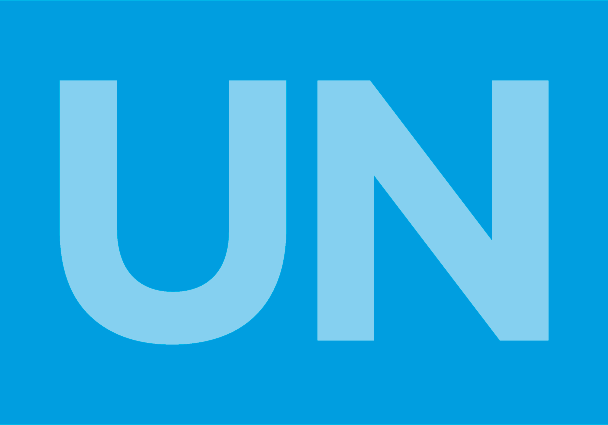
Feb 19, 2013
In two recent submissions to the Committee on the Elimination of Discrimination against Women (CEDAW), the ICJ called on CEDAW to address key barriers to justice faced by women.
The submissions came as the Committee embarks on drafting a General Recommendation on women’s access to justice.
In a joint submission, the ICJ and Friedrich-Ebert-Stiftung (FES) have called on the Committee on the Elimination of Discrimination against Women (CEDAW) to reaffirm obligations on States to effectively regulate the activities of business actors in order to ensure women’s access to justice.
The submission focuses on the issue of women’s access to justice for infringements of rights committed by non-State actors, and more specifically in the context of business activities and operations.
It makes recommendations on how States might more effectively regulate business activities so as to ensure women’s protection against discrimination and inequality and access to effective and accessible remedies when they face abuses.
In a standalone submission, the ICJ presented an overview of key barriers women face across jurisdictions when seeking justice. This submission draws on findings from ICJ in-country initiatives exploring barriers to justice faced by women.
The first general discussion on the General Recommendation took place during the CEDAW’s 54th session in Geneva on 18 February 2013.
CEDAW-Submission-A2J-BHR-LegalSubmission-2013 (download joint submission by ICJ and FES)
CEDAW-Submission-Women’sA2JNormativeObstacles-LegalSubmission-2013 (download ICJ submission)
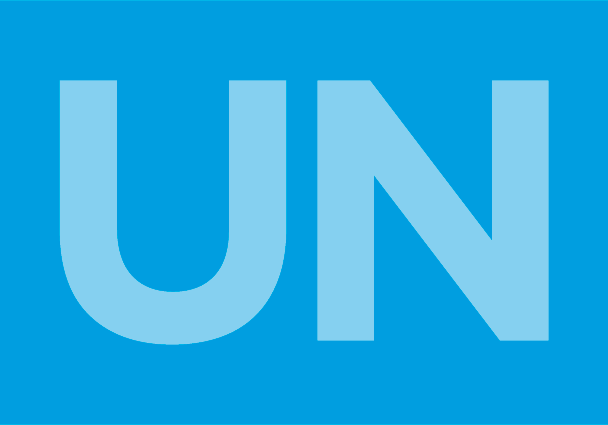
Feb 11, 2013
The ICJ has called on the Human Rights Council and its members and observers, individually and collectively, to ensure that universal and regional standards and mechanisms reinforce rather than undermine universal human rights standards.
Reflecting on the ICJ Declaration on Access to Justice and Rights to a Remedy in International Human Rights Systems, adopted during the 17th Congress of the ICJ in December 2012, the statement was submitted today to the UN ahead of the Human Rights Council’s 22nd regular session (25 February to 22 March 2013).
Recalling the emphasis placed on the right to a remedy in the Vienna Declaration and Programme of Action, adopted by consensus twenty years ago, the ICJ called on all States to:
- Ensure that regional standards and mechanisms reinforce rather than undermine universal human rights standards;
- Ensure that the outcome of the treaty body strengthening process indeed strengthens the treaty bodies;
- Actively promote universal acceptance of individual communications procedures of the treaty bodies, and fully implement interim decisions and final views of the treaty bodies; and
- Initiate an intergovernmental process for the elaboration and adoption of a statute for a World Court of Human Rights.
HRC22-Item8-WrittenStatementVDPA-A2J-LegalSubmission-2013 (download full statement in PDF)
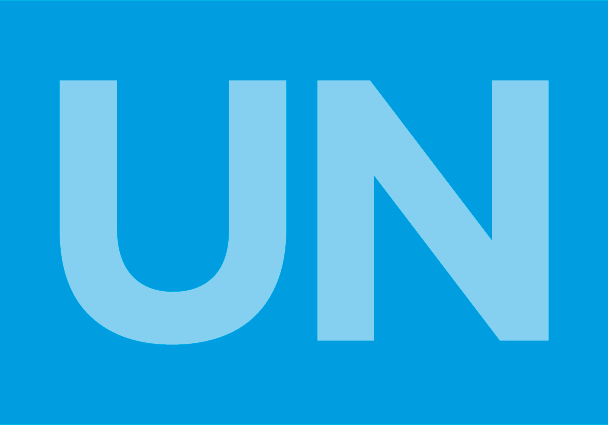
Feb 6, 2013
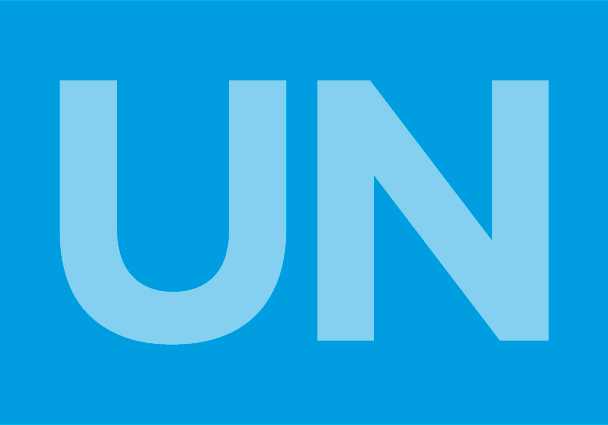 The ICJ is concerned by laws and legislative proposals in a variety of countries that severely threaten the work of lesbian, gay, bisexual and transgender (LGBT) persons and human rights defenders.
The ICJ is concerned by laws and legislative proposals in a variety of countries that severely threaten the work of lesbian, gay, bisexual and transgender (LGBT) persons and human rights defenders.
Ahead of the 22nd session of the Human Rights Council (25 February to 22 March 2013), the ICJ today submitted a written statement to the UN encouraging the Human Rights Council’s Special Rapporteur on the situation of human rights defenders to follow up on these laws and legislative proposals.
Pointing to unlawful restrictions on the freedoms of association and assembly, and the freedom of expression, in several countries, the ICJ encouraged the Special Rapporteur to:
- Call on governments to protect these rights for everyone and to ensure that any restrictions comply with the requirements of legality, of necessity and proportionality and of non-discrimination on all grounds; and
- In the case of laws or legislative proposals that fail to comply with these requirements, take appropriate action.
HRC22-Item3-HRDs-WrittenStatement-legal submission-2013 (download statement)







